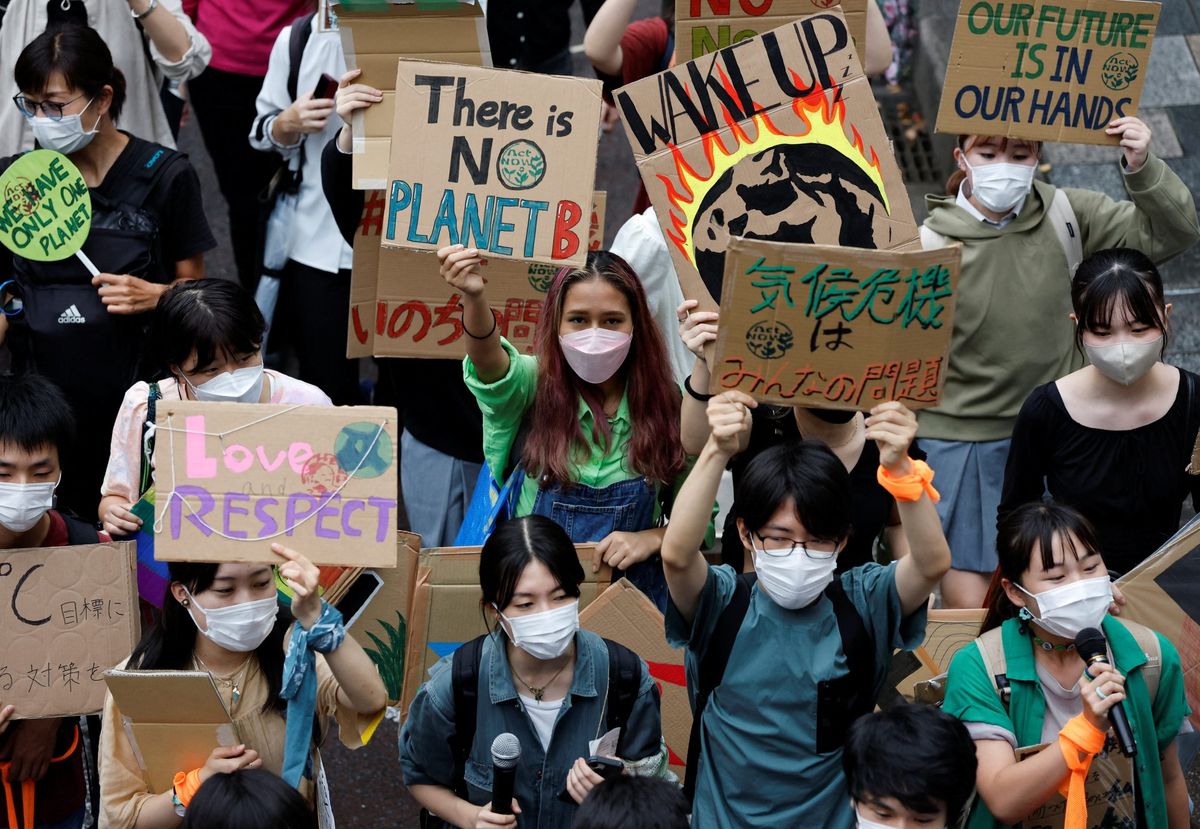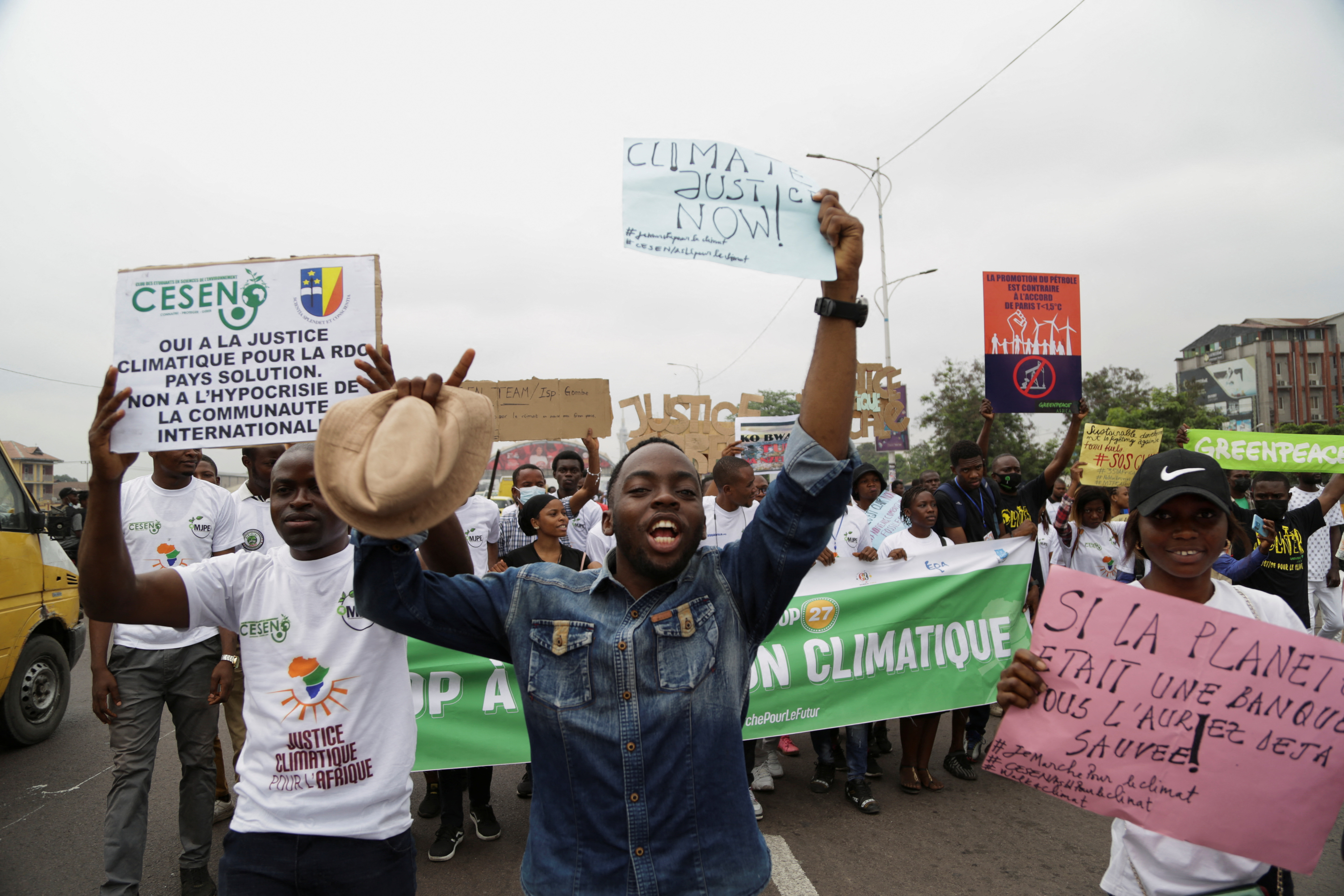Worldwide climate protests seek reparations ahead of COP27

A few minutes every morning is all you need.
Stay up to date on the world's Headlines and Human Stories. It's fun, it's factual, it's fluff-free.
As climate change causes more extreme weather events around the world, the countries that have contributed the least to global carbon emissions are often met with the most damage. In 2020, a report showed that the Global North is responsible for 92% of excess carbon emissions. And yet, developing nations in the Global South are disproportionately affected by the consequences of these excess emissions. So, recently, calls for a climate reparation fund to relieve the issue have cropped up.
On Friday, people all over the world staged climate protests in a global strike through the Fridays For Future movement. Thousands of people in about 450 locations worldwide left their jobs and schools to demand “climate reparations and justice." Coming just six weeks before the COP27 environmental conference, this protest shows support for the vulnerable countries that plan to address the need for reparations, which involves richer countries that contribute more to global carbon emissions paying for the damages poorer nations suffer as a consequence. Among countries that have demanded reparations are Senegal, Pakistan, Antigua and Barbuda and others.
Key comments:

“One day, it could be my house that gets flooded. I’m living with a sense of crisis, so I think it is more important to deliver my concerns to the government to take preventive measures rather than going to school," said 15-year-old Park Chae-yun, a protester in Seoul, South Korea.
“I am here to make visible our battle throughout the Amazon … We (have given) our lives to protect the planet," said Nemonte Nenquimo, an Indigenous leader from Ecuador’s Amazon, speaking to a crowd of demonstrators in New York City.
Last year, Walton Webson, Antigua and Barbuda’s ambassador to the UN and chair of the Alliance of Small Island States, said: “[We] deserve to live without the looming fear of debt and destruction. Our islands are bearing the heaviest burden of a crisis we did not cause, and the urgent establishment of a dedicated loss and damage response fund is key to sustainable recovery. We are experiencing climate impacts that become more and more extreme with each passing year."
“It is grossly unfair that the world’s poorest should suffer the most from the consequences of climate change, to which they have contributed the least," Danish development minister Flemming Møller Mortensen said in a statement.




Comments ()